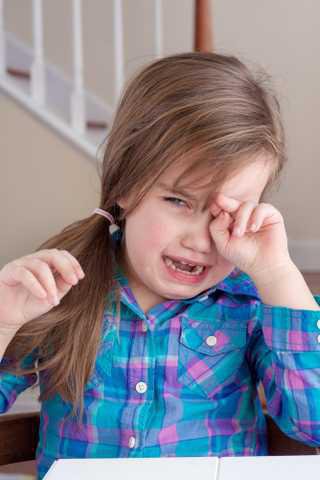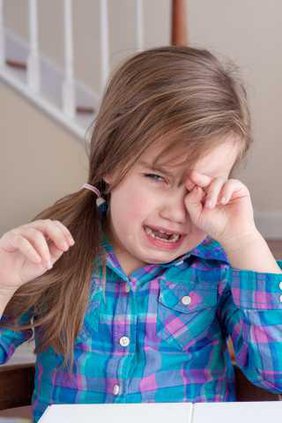AUSTIN A new study reveals that spanking your child may have a longer-lasting impact than just a few tears.
The study, a joint effort out of University of Texas at Austin and the University of Michigan, found that children who are spanked are more likely to develop aggressive and self-destructive behaviors later in life, according to Today.
Researchers looked at hundreds of spanking studies involving 160,000 children over the past five decades. They focused on the impact of open-handed spanking, defined as hitting a child on their buttocks or extremities using an open hand.
They found that not only is spanking ineffectual in the long run, but that it also contributes to a slew of issues including anti-social behavior, low self-esteem and lasting mental health problems.
We found that spanking was associated with unintended detrimental outcomes and was not associated with more immediate or long-term compliance, which are parents intended outcomes when they discipline their children, said study author Elizabeth Gershoff in a release.
The more a child was spanked in their youth, the more likely they were to exhibit these detrimental outcomes in adulthood, researchers said. Additionally, they were more likely to spank their own children perpetuating the cycle.
We as a society think of spanking and physical abuse as distinct behaviors, Gershoff said. Yet our research shows that spanking is linked with the same negative child outcomes as abuse, just to a slightly lesser degree.
A recent ABC survey revealed 65 percent of American adults approve of spanking. But that attitude needs tweaking, according to the Centers for Disease Control and Prevention.
The agency recently released a packet that aims to prevent child abuse including spanking through education and public awareness campaigns.
Child abuse and neglect can also affect broader health outcomes, mental health, social development and risk-taking behavior into adolescence and adulthood, the report reads.
Gershoff said her study findings support that report.
We hope that our study can help educate parents about the potential harms of spanking and prompt them to try positive and non-punitive forms of discipline, she said.
The study was published in the latest issue of the Journal of Family Psychology.
The study, a joint effort out of University of Texas at Austin and the University of Michigan, found that children who are spanked are more likely to develop aggressive and self-destructive behaviors later in life, according to Today.
Researchers looked at hundreds of spanking studies involving 160,000 children over the past five decades. They focused on the impact of open-handed spanking, defined as hitting a child on their buttocks or extremities using an open hand.
They found that not only is spanking ineffectual in the long run, but that it also contributes to a slew of issues including anti-social behavior, low self-esteem and lasting mental health problems.
We found that spanking was associated with unintended detrimental outcomes and was not associated with more immediate or long-term compliance, which are parents intended outcomes when they discipline their children, said study author Elizabeth Gershoff in a release.
The more a child was spanked in their youth, the more likely they were to exhibit these detrimental outcomes in adulthood, researchers said. Additionally, they were more likely to spank their own children perpetuating the cycle.
We as a society think of spanking and physical abuse as distinct behaviors, Gershoff said. Yet our research shows that spanking is linked with the same negative child outcomes as abuse, just to a slightly lesser degree.
A recent ABC survey revealed 65 percent of American adults approve of spanking. But that attitude needs tweaking, according to the Centers for Disease Control and Prevention.
The agency recently released a packet that aims to prevent child abuse including spanking through education and public awareness campaigns.
Child abuse and neglect can also affect broader health outcomes, mental health, social development and risk-taking behavior into adolescence and adulthood, the report reads.
Gershoff said her study findings support that report.
We hope that our study can help educate parents about the potential harms of spanking and prompt them to try positive and non-punitive forms of discipline, she said.
The study was published in the latest issue of the Journal of Family Psychology.





